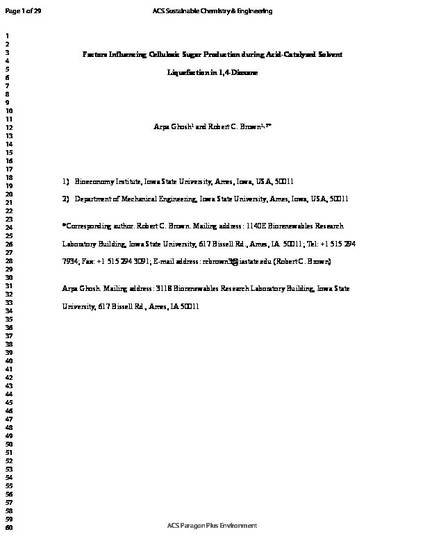
This work explores the use of 1,4-dioxane to depolymerize cellulose into solubilized carbohydrates. This low boiling point solvent offers inexpensive and simple separation compared to higher boiling point solvents such as Y-valerolactone previously considered for acid-catalyzed depolymerization of cellulose. In the present study, several key reaction parameters, including reaction temperature, catalyst concentration, and water content, were studied as major factors influencing sugar production from cellulose. A maximum yield of 51% for levoglucosan, the major product of cellulose depolymerization, was achieved at higher temperature, shorter reaction time and lower acid concentration in the ranges tested for these parameters. Addition of water as co-solvent enhanced solubilization of cellulose and increased solubilized carbohydrate production, which could potentially enable processing of cellulose at high feedstock loadings and milder operating conditions.
Available at: http://works.bepress.com/robert_brown/141/

This document is the unedited Author’s version of a Submitted Work that was subsequently accepted for publication in ACS Sustainable Chemistry & Engineering, copyright © American Chemical Society after peer review. To access the final edited and published work see DOI: 10.1021/acssuschemeng.9b05108. Posted with permission.